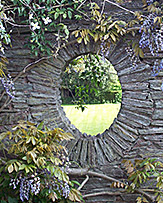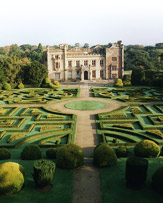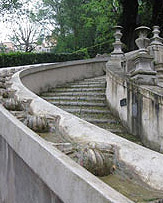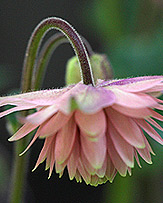How to make compost
Making compost is a hot topic for gardeners. With so many techniques and ideas on how to make the best compost, from new rotating and aerobic bins to the old style basic 'heaps'. Methods for making good compost remain much the same, get if right and you will have wonderful composted humus to add to the soil.
Composting is the process of recycling organic matter, helping it break down to make a useful nutrient rich organic fertilizer for the garden. And of course it also helps the environment.
Good composting basics
Compost and mulch are both soil improvers that we can make ourselves, they are different but both very useful
In terms of compost you can use just about anything organic except Meat, blood and bones these and a few other things should not be composted.
One of the principles is to make the components as small as possible to hasten the process. So even branches can be used, they just need to broken done using a chipper or mulcher first.
Compost Layers
In any static bin or heap layers are essential. We are looking at layers of greens and browns or if you like nitrogen and carbon.
Greens
These are the materials that are high in nitrogen and include.
Lawn clippings, Vegetable Peelings, Sheep , Horse, Cow and Poultry manure. Coffee grounds, Seaweed, Green Cuttings from plants
Browns
These are the material that are high in carbon and include
Leaves, Sawdust, Paper, Egg shells, Tea Bags and Straw
Ratio of Greens (nitrogen) to Browns (carbon)
In terms of ratio of Greens to Browns (nitrogen to carbon) it should be at 30:1. Now this gets difficult as some materials have more nitrogen in them than others.
So lets keep it simple and use a ratio of one part green to 2 parts brown
What else ?
The addition of microbes, simply a few handfuls of good garden soil helps speed up the natural process, moisture helps as well.
So how long should it take to make compost ? This will depend on the climate and how much oxygen gets into the compost heap. You can use a tumbler or bin if you have the money but simple layering of components and adding some beneficial microbes will help, as will adding a little moisture during dry periods.
How to make compost (techniques).
Composting can be carried out in a number of ways.
Compost Bins.
Usually these are large plastic bins that may be either fully enclosed or they may sit on the ground. Bins can help keep vermin away if you use an enclosed system. However bins can be difficult to turn and therefore slower than conventional heaps or tumblers.
Compost Tumblers.
Again they are usually plastic, sometimes metal, they can be rotated to mix and aerate the composting materials. Tumblers work best when they are filled and then turned, not added to to little by little
Compost Heaps or Piles.
Compost heaps are just that, a heap of compostable materials, layered and turned regularly. With a proper mix of materials and regular turning compost heaps are relatively quick to make compost.
What can you compost ?
Leaves, Lawn clippings, vegetable scraps, none weedy plants, coffee grounds, eggshells, tea leaves, sawdust from non treated timber, shredded paper, manure from plant eating animals and seaweed all make good compost. DO NOT ADD diseased plant material to compost heaps.
Perennial weeds are OK but only if you can get the compost heap hot enough to kill the seeds and roots. Avoid adding those really 'tough' weeds to compost heaps
TOP TEN COMPOSTING TIPS.
- Collect materials in piles throughout the year.
- Add a little soil to the compost.
- Layer your compost with wet and dry materials. Compost piles mage of lawn or grass clippings need carbon added, otherwise they just tend to ferment and smell.
- Add some manure or blood and bone, to kick start your compost.
- Add water if the compost gets to dry, add shredded paper or cardboard if it gets to wet.
- Turn your compost heap regularly.
- Avoid adding new materials to a compost heap once you have started the process.
- Make sure your compost is fully decomposed before using on the garden. Compost should look and smell like good soil when ready to use.
- The warmer the compost heap the quicker it will decompose, so choose a sunny spot.
- Do not compost meat, droppings from any carnivorous animal, fat etc. Or weeds treated with herbicides.
USING COMPOST ON THE GARDEN
- Try mixing a few handfuls of compost with water to make a liquid fertiliser.
- Dig compost into the soil a few weeks before planting.
- If digging compost into new parts of the garden, leave for 3 - 4 weeks before planting, compost can tend to slump a little after applying, lowering the soil level.




